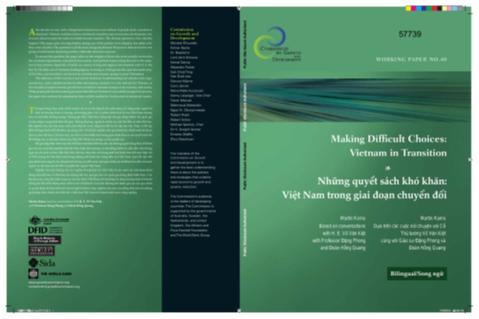Resource information
After decades of war, with a dilapidated infrastructure and millions of people dead, wounded or displaced, Vietnam could have been considered a hopeless case in economic development. Yet, it is now about to enter the ranks of middle-income countries. The obvious question is: How did this happen? This paper goes one step further, asking not which policies were adopted, but rather why they were adopted. This question is all the more intriguing because the process did not involve one group of individuals displacing another within the structure of power. To answer this question, the paper relies on the insights of those who were actually involved in the economic experiments, conceptual discussions, and political maneuvering that led to the adoption of key reforms. Especially, it builds on a series of long and regular conversations with H. E. the late Vo Van Kiet, one of Vietnam's leading figures. In doing so, it brings into the open the inside story of Doi Moi, a process that is not known by outsiders and remains opaque to most Vietnamese. The relevance of this exercise is not merely historical. Understanding how reforms were engineered may yield valuable lessons for other developing countries. It is also relevant for Vietnam, as two decades of rapid economic growth have resulted in dramatic changes in its economy and society. While praising the decision-making processes that allowed Vietnam to successfully emerge from poverty, the paper also explores the adjustments that could be needed for it to become an industrial country.


